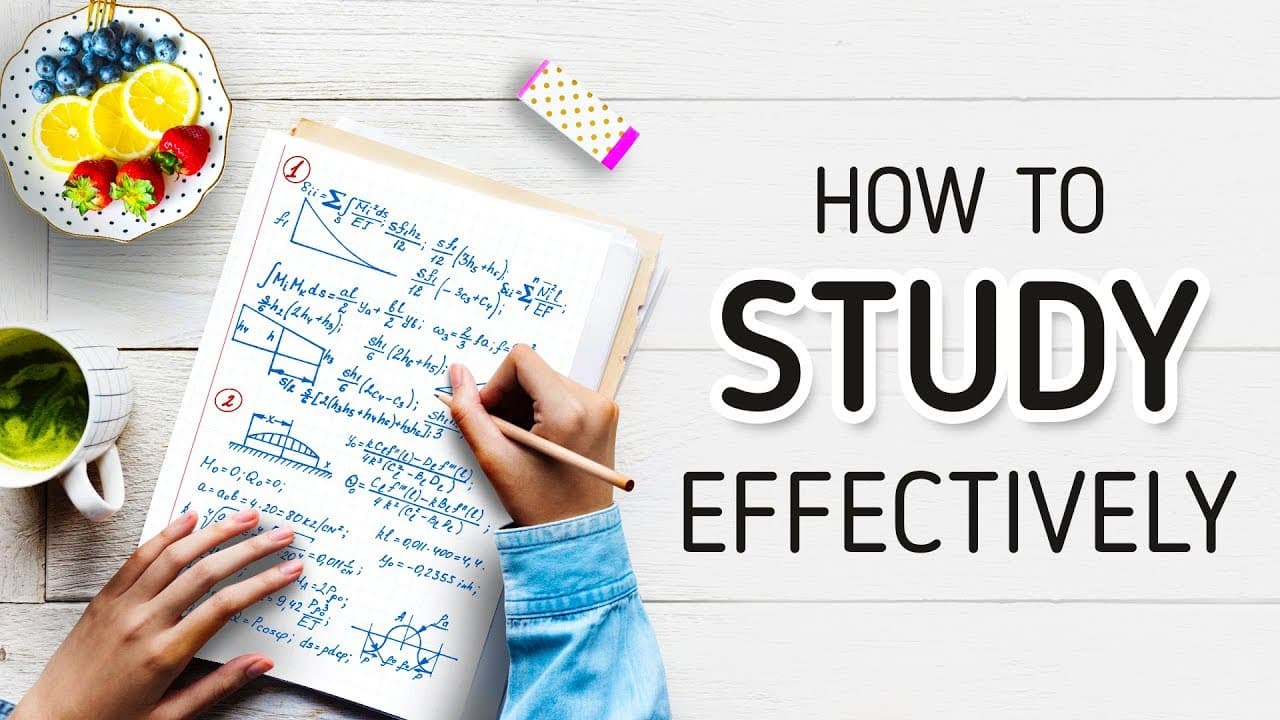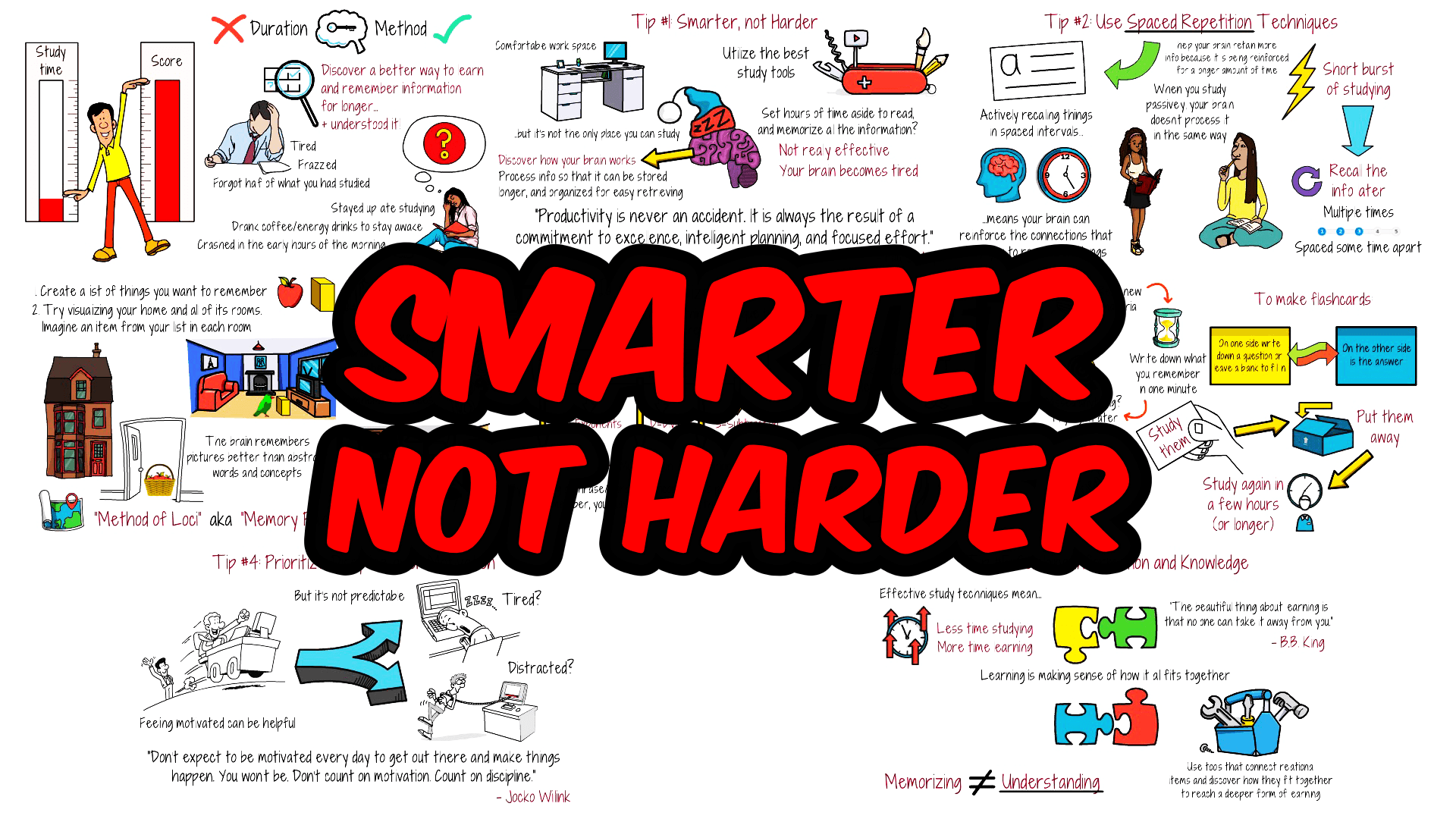
How to Study Effectively: Science-Backed Strategies to Great Learning 2026
How can students study effectively and retain more information?
Students can study effectively by using active learning techniques such as spaced repetition, the Pomodoro method, and self-testing. Creating a distraction-free environment, setting clear goals, and tailoring study methods to individual learning styles also improve focus and retention. This complete guide breaks down the science of effective studying and offers actionable tips, study hacks, and proven strategies to help learners of all levels maximize their academic performance.
If you’ve ever pulled an all-nighter, reread the same textbook page three times, or blanked out during an exam despite “studying hard,” you know that how you study matters far more than how long you study. Effective studying isn’t about brute force—it’s about working smarter. In this guide, you’ll learn how to study effectively using strategies rooted in cognitive psychology and neuroscience, whether you’re prepping for exams, mastering math, or studying at home. Let’s transform your learning process.

Why Most Study Methods Fail (And What Actually Works)
Traditional study habits like passive reading, cramming, and highlighting are ineffective because they ignore how the brain encodes and retrieves information. Research shows that active recall (self-testing) and spaced repetition (reviewing material over time) boost retention by up to 70% compared to passive methods.
Key principles for effective studying:
- Active Engagement: Interact with the material (e.g., quizzes, teaching others).
- Spaced Practice: Study in short, frequent sessions over days or weeks.
- Focus on Understanding: Prioritize comprehension over rote memorization.
Also Visit: How to Score 95% in Your Exams
How to Study Effectively for Exams: A Step-by-Step Plan
Step 1: Prioritize Your Topics
- Use the 80/20 Rule: Focus on the 20% of material that will likely cover 80% of exam questions (e.g., past papers, professor hints).
- Tackle high-weightage topics first.
Step 2: Use Active Recall
- What to do: Close your notes and write down everything you remember. Use flashcards or apps like Anki.
- Why it works: Testing yourself strengthens neural pathways.
Step 3: Space Out Your Sessions
- Study the same material 3 times over a week instead of cramming in one day.
- Example schedule: Monday → Wednesday → Friday.
Step 4: Simulate Exam Conditions
- Practice with a timer and no notes to reduce exam-day anxiety.
Related
How to Revise Effectively: The 3-Day Revision Strategy
Revision isn’t about rereading—it’s about retrieving information. Try this 3-day method:
- Day 1: Study the material and create summary notes.
- Day 3: Test yourself on key concepts (active recall).
- Day 7: Review weak areas and solve practice questions.
Pro Tip: Teach the material to a friend or even a rubber duck. Explaining concepts aloud uncovers gaps in understanding.
How to Study Effectively in a Short Time
Got 24 hours before an exam? Here’s how to triage:
- Skim Strategically: Use headings, summaries, and diagrams to grasp key ideas.
- Focus on Past Papers: Identify recurring question patterns.
- Use the Pomodoro Technique: 25 minutes of intense focus → 5-minute break.
- Prioritize Weak Areas: Allocate 60% of time to topics you struggle with.
Avoid: Multitasking—it reduces efficiency by 40%.
How to Study Effectively at Home (Without Distractions)
Home studying is riddled with distractions. Fix this with:
- Designate a “Study Zone”: A quiet, clutter-free space (not your bed!).
- Block Digital Distractions: Use apps like Freedom or Cold Turkey to block social media.
- Set Micro-Goals: “I’ll finish 10 calculus problems in 30 minutes.”
Example Schedule:
- 9:00–9:25 AM: Solve math problems (Pomodoro 1).
- 9:30–9:55 AM: Review biology flashcards (Pomodoro 2).
- 10:00 AM: Reward yourself with a snack.
How to Study Math Effectively: Crush Numbers Without Stress
Math requires practice and conceptual clarity. Here’s how to ace it:
- Solve Problems Step-by-Step: Write out every step—even if it feels tedious.
- Understand the “Why”: Use resources like Khan Academy to grasp underlying principles.
- Review Mistakes: Keep an “error log” to track recurring issues.
Pro Tip: For formulas, create mnemonics. Example: SOHCAHTOA for trigonometry.
How to Learn Effectively: 3 Brain-Friendly Techniques
- Interleaving: Mix topics during study sessions (e.g., alternate between algebra and geometry).
- Elaboration: Ask “how” and “why” questions to connect new ideas to existing knowledge.
- Dual Coding: Combine words + visuals (e.g., draw a diagram while reading notes).
How to Study More Effectively: 5 Quick Wins
- The 2-Minute Rule: If a task takes <2 minutes (e.g., reviewing flashcards), do it immediately.
- Sleep on It: Study before bed—sleep consolidates memory.
- Hydrate: Dehydration reduces focus by 20%.
- Use the Feynman Technique: Simplify complex topics as if teaching a 5th grader.
- Reward Yourself: Finished a chapter? Watch a 10-minute YouTube video.
Related
FAQs: How to Study Effectively
1. What’s the best study method?
Answer: Active recall + spaced repetition. Test yourself repeatedly and space sessions over time.
2. How can I focus 100% on studying?
Answer: Use the Pomodoro Technique (25-minute blocks) and eliminate distractions (e.g., phone on airplane mode).
3. What is the 2/3,5/7 study method?
Answer: Review notes on day 2, day 3, day 5, and day 7 after initial learning. Enhances long-term retention.
4. How to study effectively for long hours?
Answer: Break sessions into 45-minute blocks with 15-minute breaks. Stay hydrated and snack on nuts/fruit.
5. What are the 7 secret study methods?
Answer:
- Active recall
- Spaced repetition
- Pomodoro
- Feynman Technique
- Interleaving
- Dual coding
- Sleep-based consolidation.
Quick Summary: How to Study Effectively
To study effectively:
✅ Actively test yourself (no passive reading!).
✅ Space out sessions over days.
✅ Prioritize understanding over memorization.
✅ Eliminate distractions (phone, noise).
✅ Sleep 7–9 hours—your brain consolidates memories during sleep.
Pro Tip: Start early, focus on weak areas, and reward progress!
Final Thoughts
Effective studying isn’t a talent—it’s a skill. By using strategies like active recall, spaced repetition, and the Pomodoro Technique, you’ll spend less time studying and retain more information. Remember: Consistency beats cramming. Now go crush that exam!



